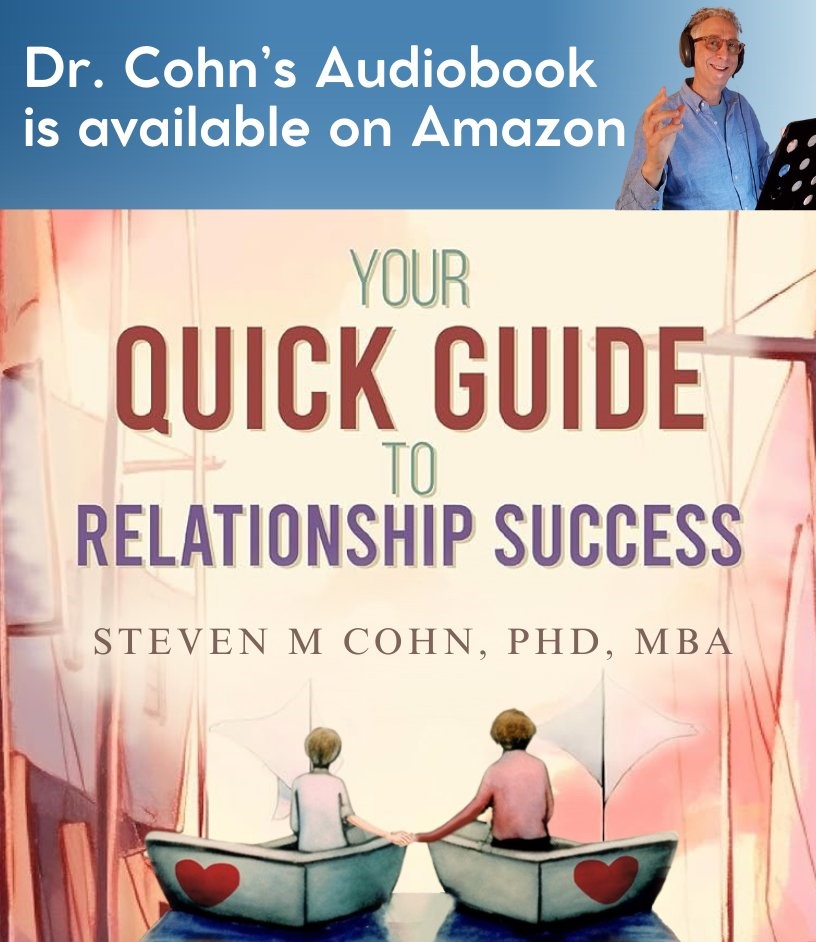- Home
- Second Marriages
- Christian Second Marriage
Christian Second Marriage
For many, a Christian second marriage is a topic that is tough to come to terms with. According to David Jones, in The Betrothal View of Divorce and Remarriage, “scholars have not been able to construct a standard moral framework for this issue—that is, there is no unanimity of thought on what the Scriptures teach on divorce and remarriage.”(1)
Steven M Cohn, PhD, LMFT
Virtual Marriage and Couples Counseling
Serving Clients Throughout Oregon
503-282-8496

Confusion about Christian Second Marriage
The source of the confusion surrounding Christian second marriage appears to arise from the so-called “exception” clause found in Matthew 5:32. This passage reads: “But I tell you that anyone who divorces his wife, except for marital unfaithfulness, causes her to become an adulteress, and anyone who marries the divorced woman commits adultery.” Most scholars interpret this passage to mean that the only acceptable reason for divorce is unfaithfulness.
However, given that 27% of born-again Christians are divorced(2), it appears that there may be a need to re-examine the idea of getting married again. In his book, “Divorce and Remarriage in the Bible,” David Instone-Brewer(3) notes that the Old Testament allowed divorce not only for adultery, but also for neglect or abuse. Further, both Jesus and Paul refrained from condemning remarriage after a “valid” divorce, defined as one resulting from adultery, neglect, or abuse. In an article in Christianity Today, Christin Ditchfield(4) notes that when interpreting Biblical teaching on Christian second marriages, “some seem to ignore the grace of God—and the wisdom and guidance of all the other Scriptures in the Bible—for an extreme form of legalism.
Others seem to go to great lengths to find ways to dismiss what the Bible teaches, explaining it away as though it's no longer relevant. Both approaches are dangerous.” Ditchfield continues on to say that a lot of the “rightness” or “wrongness” of Christian second marriage depends on “the circumstances and the attitudes of those involved.”
When considering a second marriage, it is important for Christians to take the time to seek out the assistance of a spiritual mentor or qualified Relationship Specialist if there are worries about the morality of remarrying. Take the time to consider the alternatives: living together without benefit of marriage, denying your happiness together by splitting up, or returning to the first spouse who may have been abusive or neglectful. Which of the outcomes will bring a person closer to God? In many cases, it may be that the best course of action is indeed remarriage.
Clearly, going through a divorce is an agonizing time for a
Christian. Once the decision has been made that the marriage is no
longer viable, the Christian must search his or her heart and ask
forgiveness for the part he or she played in causing the marriage not to
work. Because we can be assured that we do receive forgiveness for our
sins, we can then look for ways in which to better serve God. In some
cases, this may indeed mean a Christian second marriage.
Building a successful Christian second marriage involves navigating the complexities of blending two lives, often shaped by previous experiences and commitments. The foundation of a successful second marriage lies in faith, communication, and a commitment to growth.
First and foremost, a strong foundation in Christian faith can provide guidance and support. Shared values, beliefs, and a commitment to God's teachings can serve as an anchor in times of difficulty. Regularly attending church, participating in spiritual activities together, and seeking guidance from a trusted spiritual leader can help strengthen the bond between spouses.
Communication is a key element in any marriage, and it becomes even more crucial in a second marriage. Both partners should be open and honest about their pasts, acknowledging any challenges or mistakes. Discussing expectations, boundaries, and goals for the future is essential to ensure that both individuals are on the same page. Effective communication also involves active listening and empathy, fostering a deeper understanding of each other's perspectives.
Forgiveness is a fundamental Christian principle, and it plays a pivotal role in the success of a second marriage. Both spouses may carry emotional baggage from previous relationships, and learning to forgive and let go is essential for healing and moving forward. This doesn't mean forgetting the past, but rather, it involves choosing not to let past hurts dictate the present and future of the relationship.
Continuous growth and self-improvement are important aspects of a successful Christian second marriage. Couples can engage in activities that promote personal and relational growth, such as attending marriage enrichment programs, reading Christian literature together, or seeking counseling when needed.
In conclusion, a successful Christian second marriage requires a foundation of faith, open communication, forgiveness, and a commitment to growth. By embracing these principles, couples can create a resilient and fulfilling partnership that reflects the teachings of Christianity and withstands the challenges that may arise.
Endnotes
(1)Jones, David W. The Betrothal View of Divorce and Remarriage. BIBLIOTHECA SACRA 165: 68-85. January – March, 2008.
(2)Wenham, Gordon J., William A. Heth, Craig S. Keener, and Mark L. Strauss. Remarriage After Divorce in Today's Church: 3 Views. Grand Rapids, Mich: Zondervan, 2006.
(3)Instone-Brewer, David. Divorce and Remarriage in the Bible: The Social and Literary Context. Grand Rapids, Mich: W.B. Eerdmans, 2002.
(4)Ditchfield, Christin. Is My Remarriage a Sin? http://www.christianitytoday.com/tc/2007/mayjun/4.18.html. Retrieved 7/26/2009.
As a Relationship Specialist, Steven Cohn, PhD, works with marriages and couples from all over Oregon including these cities, towns, and suburbs: Portland, West Linn, Dunthorpe, Pearl District, Bethany, West Hills, Irvington, Lake Oswego, Alameda, Bend, East Moreland, Salem, Ashland, and Medford.
And these Oregon zip codes: 97034, 97219, 97212, 94501, 94502, 97229, 97840, 97451, 97106, 97068, 97221, 97140, 97035, 97036
Share
Follow

Steven M Cohn, PhD is honored to have been featured on CNBC.com.

Steven M Cohn, PhD is pleased to have been featured on Koin 6 Television: "Boost In The Bedroom."

Steven M Cohn, PhD is pleased to have been featured on both KATU.com and KATU Channel 2 Television.

Steven M Cohn, PhD is pleased to have been featured on Oregon Live "Why Oregon's Latest Divorce Statistics May Be Divorced From Reality"

Steven M Cohn, PhD, MBA, LMFT has been named one of the top three marriage counselors in Portland, Oregon three years in a row by the non-profit organization Three Best Rated



